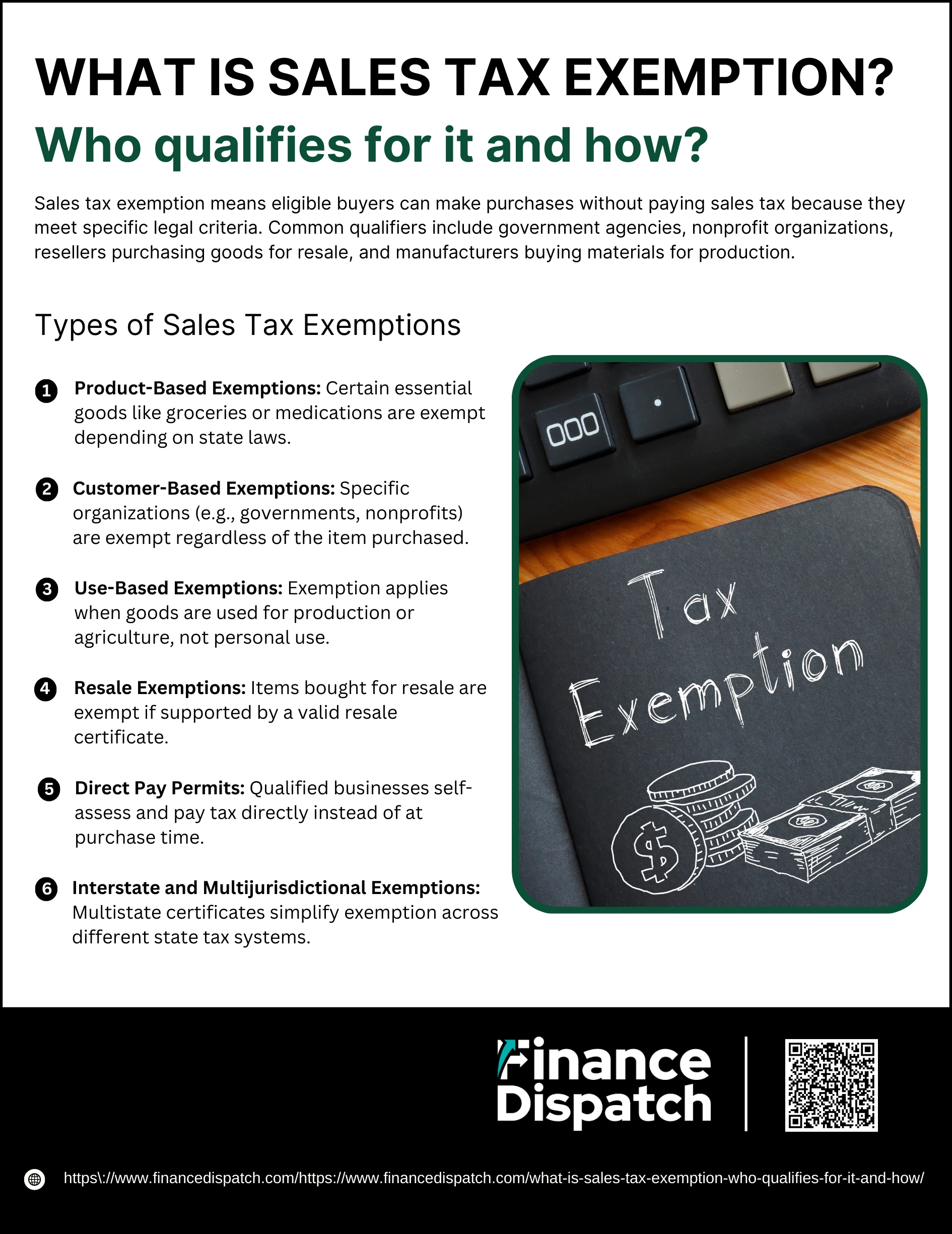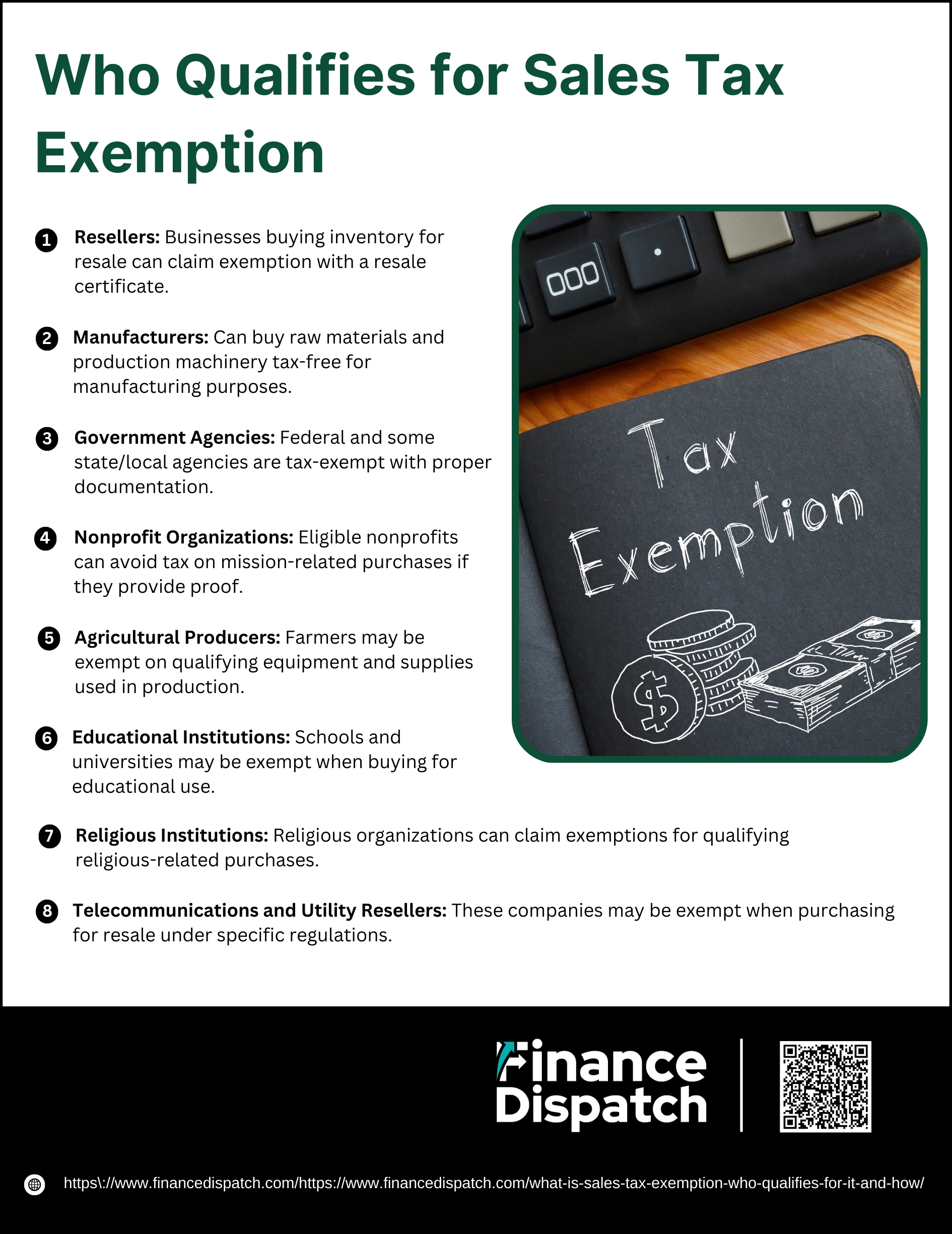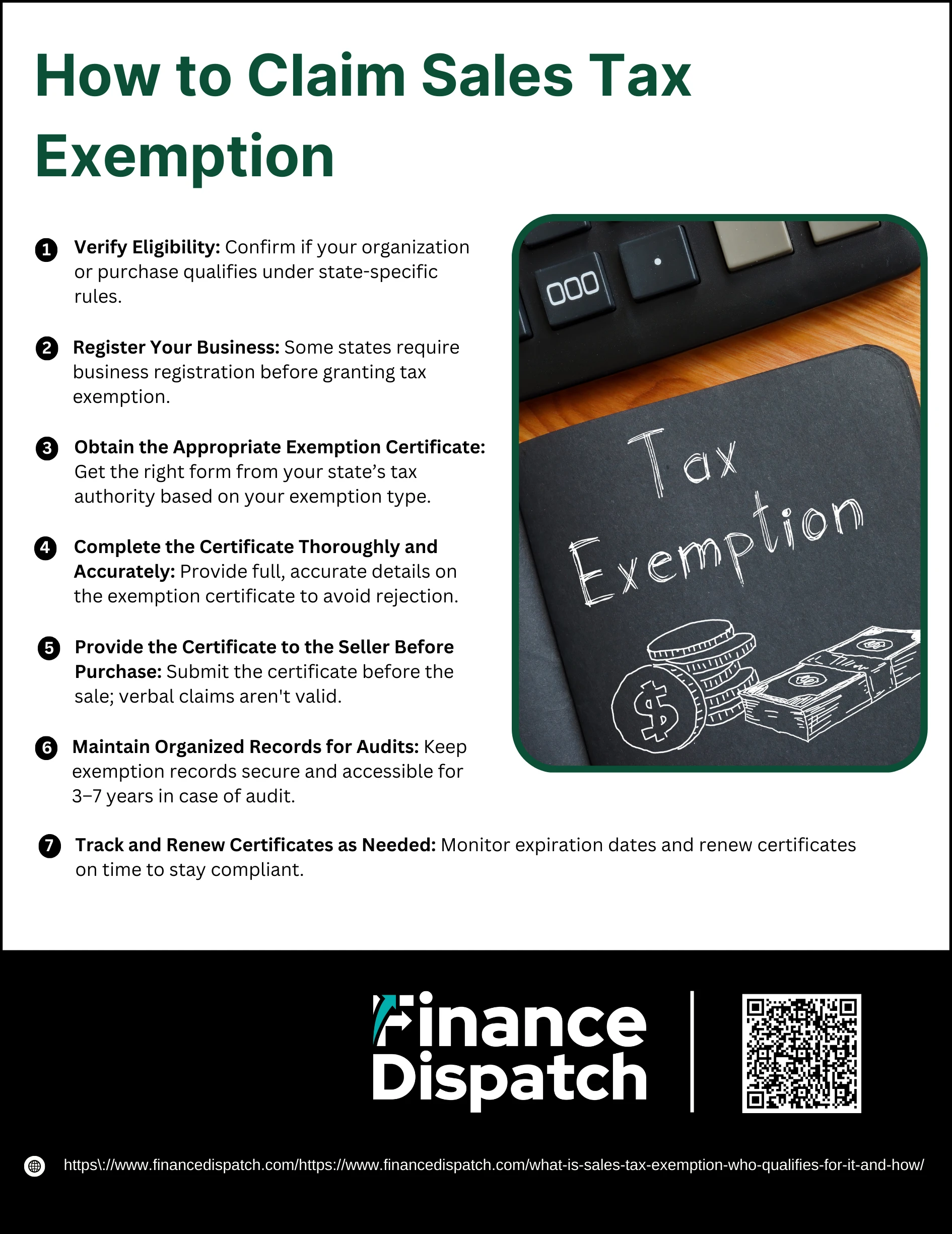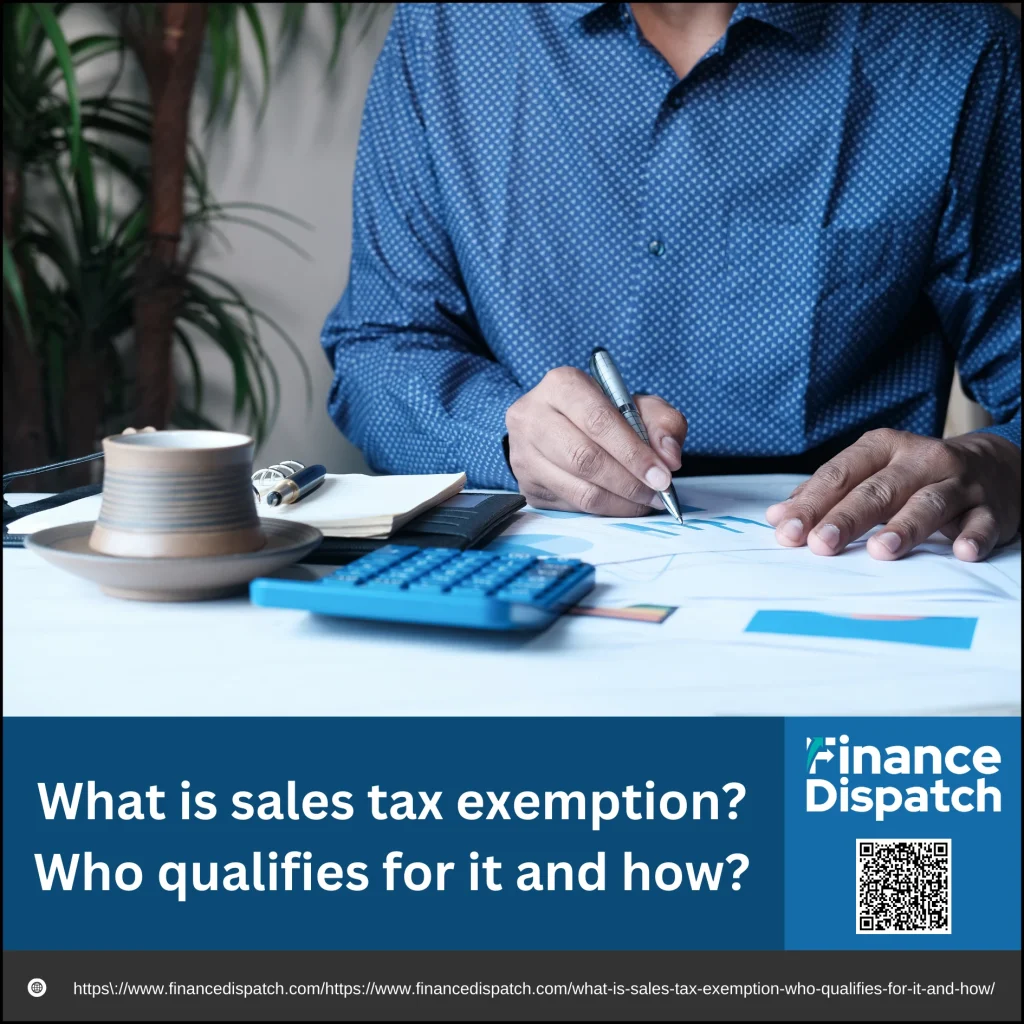Navigating the world of sales tax can feel overwhelming—especially when exemptions come into play. Whether you’re a small business owner, nonprofit administrator, or reseller, understanding sales tax exemption could mean the difference between costly errors and significant savings. Simply put, sales tax exemptions allow certain buyers or transactions to legally avoid paying sales tax under specific conditions. But figuring out who qualifies, when, and how isn’t always straightforward. This article breaks down what sales tax exemptions are, who can claim them, and what steps are needed to do it correctly—so you can stay compliant and keep more money in your pocket.
What Is Sales Tax Exemption?
Sales tax exemption is a legal provision that allows certain individuals, businesses, or organizations to purchase specific goods or services without paying the standard sales tax. This exemption is not a loophole but a recognized part of tax law designed to prevent double taxation and support certain economic or social objectives. For example, a retailer buying inventory to resell, a nonprofit purchasing supplies for charitable programs, or a government agency acquiring office equipment may all qualify for exemption. In such cases, the buyer must typically present a valid exemption certificate to the seller at the time of purchase. It’s important to note that these exemptions vary by state, product type, and buyer classification, making it essential to understand the specific rules that apply in your jurisdiction.
 Types of Sales Tax Exemptions
Types of Sales Tax Exemptions
Sales tax exemptions aren’t one-size-fits-all—they are categorized based on what is being purchased, who is buying, and how the item will be used. These exemptions are designed to support specific economic activities, prevent double taxation, and provide relief to qualifying entities such as nonprofits, resellers, or government agencies. To benefit from any exemption, proper documentation—typically in the form of an exemption certificate—must be presented and maintained. Below are the primary types of sales tax exemptions you should understand:
1. Product-Based Exemptions
These apply to specific categories of goods that are deemed essential or non-taxable under state law. Common examples include groceries, prescription medications, medical devices, and certain clothing items. The rules and eligible products vary widely across states.
2. Customer-Based Exemptions
Some organizations are exempt from paying sales tax regardless of what they purchase. This includes government entities, nonprofit organizations, educational institutions, and religious groups. However, they must prove their eligibility through a valid exemption certificate.
3. Use-Based Exemptions
These exemptions depend on how the product will be used after purchase. For instance, raw materials purchased for use in manufacturing finished goods are often exempt, as are items used in agricultural production. The key factor is that the item is not for personal or end-use consumption.
4. Resale Exemptions
Businesses that buy items for the purpose of reselling them to end customers can avoid paying sales tax at the time of purchase. To claim this exemption, they must present a valid resale certificate to the seller, stating that the items will be resold and tax will be collected from the final buyer.
5. Direct Pay Permits
Larger businesses with complex purchasing needs may qualify for a direct pay permit, allowing them to buy items without paying sales tax upfront. Instead, they self-assess and remit the appropriate tax directly to the state, simplifying compliance in cases where purchases are used for both taxable and exempt purposes.
6. Interstate and Multijurisdictional Exemptions
Businesses operating across multiple states can benefit from exemption certificates accepted in several jurisdictions. Examples include the Multistate Tax Commission (MTC) Uniform Sales and Use Tax Certificate and the Streamlined Sales Tax Exemption Certificate, which simplify compliance for multistate sellers and buyers.
 Who Qualifies for Sales Tax Exemption?
Who Qualifies for Sales Tax Exemption?
Not everyone is required to pay sales tax on their purchases. In fact, certain individuals, businesses, and organizations qualify for exemptions based on their purpose, status, or how they intend to use the items they purchase. These exemptions are designed to prevent double taxation, support public service efforts, and promote economic productivity. However, qualification rules differ from state to state, so it’s important to verify local regulations before claiming any exemption. Below are the most common groups that may qualify:
1. Resellers
Businesses that buy products with the intent to resell them to end customers can qualify for sales tax exemption on those purchases. They must present a valid resale certificate to their suppliers, confirming the items are for resale and not for their own use.
2. Manufacturers
Manufacturers often qualify to purchase raw materials, components, and certain machinery without paying sales tax—so long as those items are used directly in the production of goods that will be sold to consumers.
3. Government Agencies
The U.S. federal government is always exempt from paying sales tax. Many state and local government agencies are also exempt, although rules can vary. These entities must typically present official purchase orders or exemption documentation.
4. Nonprofit Organizations
Charitable, religious, educational, and scientific nonprofits may be eligible for sales tax exemptions, particularly when purchases directly support their exempt missions. However, eligibility and scope of exemption vary by state, and documentation like a 501(c)(3) letter is often required.
5. Agricultural Producers
Farmers and ranchers may qualify for exemptions on items such as seeds, fertilizers, livestock feed, and farming equipment used directly in production. Most states require a special agricultural exemption certificate to claim this benefit.
6. Educational Institutions
Public and private schools, colleges, and universities can often make tax-exempt purchases related to educational purposes. This exemption typically does not cover purchases for commercial or unrelated use.
7. Religious Institutions
Churches, temples, mosques, and other religious organizations can qualify for exemptions on purchases that directly support religious activities. Like nonprofits, they must often show both nonprofit status and appropriate documentation.
8. Telecommunications and Utility Resellers
Companies that buy telecom services or utilities for resale may qualify for exemption. This area is highly regulated and usually requires specialized forms and compliance checks.
 How to Claim Sales Tax Exemption
How to Claim Sales Tax Exemption
Claiming a sales tax exemption isn’t as simple as telling a vendor you’re tax-exempt—you must follow a formal process backed by proper documentation. Whether you’re a nonprofit buying supplies, a retailer purchasing inventory, or a government agency acquiring equipment, the burden is on you to prove that your transaction qualifies. Each state has its own rules, forms, and verification procedures, so businesses and organizations must stay organized and informed to avoid paying unnecessary tax—or worse, face penalties during an audit. Below is a more detailed guide to help you claim your exemption correctly and confidently:
1. Verify Eligibility
Start by identifying whether your organization, business, or transaction qualifies for a sales tax exemption. This depends on several factors, including your status (e.g., nonprofit, government entity, reseller), the nature of your purchase, and state-specific laws. For example, nonprofit status alone does not guarantee exemption in every state—it often depends on how the item will be used.
2. Register Your Business (if required by the state)
In many states, you must register your business with the state tax authority before applying for any sales tax exemption. This usually involves obtaining a sales tax license or seller’s permit and registering for a tax identification number. Without this, you may not be eligible to issue or accept exemption certificates.
3. Obtain the Appropriate Exemption Certificate
Once you’re registered, visit your state’s Department of Revenue website to find the correct exemption certificate form. There are different certificates for different purposes—such as resale certificates for retailers, agricultural exemption certificates for farmers, and entity-based certificates for nonprofits or government agencies. Businesses operating in multiple states may benefit from using multijurisdictional certificates like the MTC Uniform Sales and Use Tax Certificate or the Streamlined Sales Tax Certificate of Exemption (if accepted by those states).
4. Complete the Certificate Thoroughly and Accurately
Fill out the form with precise and complete details. This typically includes your organization’s name, address, tax ID number, reason for exemption, description of the items being purchased, and a signature with a date. Some states require additional documentation or proof of status. An incomplete or incorrect form could be rejected, and the vendor may be forced to charge you sales tax.
5. Provide the Certificate to the Seller Before Purchase
Submit the completed certificate to your vendor before completing the purchase. Sellers are required by law to collect sales tax unless they receive a valid and properly executed exemption certificate at the time of sale. Verbal claims or expired certificates won’t be accepted—and vendors are legally responsible for validating your exempt status.
6. Maintain Organized Records for Audits
Both buyers and sellers are responsible for keeping exemption certificates on file. These records should be stored securely and must be readily accessible in the event of a tax audit. Most states require businesses to keep these certificates for three to seven years. Sellers who fail to maintain records can be held liable for unpaid taxes, even if the buyer was actually exempt.
7. Track and Renew Certificates as Needed
Many exemption certificates expire after a set period—usually one, two, or five years. It’s your responsibility to track expiration dates and submit renewals on time. Using an automated tool or software to manage certificate deadlines can help prevent disruptions in your tax-exempt status.
Rules for Sellers: Handling Exemption Certificates
For sellers, managing sales tax exemption certificates is a critical responsibility. While buyers are the ones who claim exemption, it’s up to the seller to ensure that proper documentation is collected, verified, and stored. If a seller allows a tax-free sale without having a valid exemption certificate on file, they could be held liable for the uncollected sales tax—plus penalties and interest. To protect your business and stay compliant with state tax laws, here are the essential rules you need to follow when handling exemption certificates:
1. Collect Certificates at the Point of Sale
Always request and receive a valid exemption certificate before completing a tax-exempt transaction. Never rely on verbal claims or vague promises to provide one later.
2. Use the Correct Certificate for the Transaction
Make sure the certificate type matches the nature of the exemption—such as a resale certificate for inventory purchases or a nonprofit exemption for charity-related transactions.
3. Verify Certificate Accuracy
Check that all required fields are filled in properly, including tax ID numbers, buyer and seller names, exemption reason, signature, and date. Incomplete or incorrect certificates may not protect you in an audit.
4. Ensure the Purchase Matches the Claimed Exemption
Confirm that the item being sold qualifies for the exemption claimed. For example, a nonprofit may be exempt only for mission-related purchases—not general office supplies.
5. Track Certificate Expiration Dates
Many states require certificates to be renewed periodically (e.g., every 1–5 years). Use a tracking system to alert you when a renewal is due.
6. Store Certificates Safely and Accessibly
Maintain digital or organized physical copies of all exemption certificates. These must be available in case of a sales tax audit, typically for 3 to 7 years.
7. Apply Exemptions Only to Eligible Transactions
If a customer has a partial exemption or if only certain items qualify, charge sales tax on the non-exempt portion of the purchase.
8. Don’t Accept Expired Certificates
If a certificate is out of date, treat the customer as taxable until a valid updated certificate is provided.
9. Consider Automation Tools
Use exemption certificate management software to automate tracking, validation, and storage. This reduces manual errors and ensures smoother compliance.
Sales Tax Exemption Common Mistakes and How to Avoid Them
Sales tax exemptions can offer valuable savings, but they also come with strict compliance requirements. Businesses that overlook the rules or mishandle exemption certificates may face serious consequences—including unexpected tax bills, penalties, or failed audits. Many of the most common mistakes are avoidable with proper attention to documentation, state-specific laws, and internal processes. Below are some of the key pitfalls to watch out for, along with tips to help you steer clear of them:
1. Accepting Verbal Claims Without Documentation
Never process a tax-exempt sale based solely on a customer’s verbal statement. Always require a valid, completed exemption certificate before removing sales tax.
2. Using the Wrong Type of Certificate
Make sure the certificate provided matches the type of exemption being claimed—such as a resale certificate for resellers or a nonprofit certificate for charitable organizations.
3. Failing to Verify Certificate Accuracy
Incomplete or incorrect information—like a missing signature, invalid tax ID number, or wrong purchase purpose—can make a certificate invalid during an audit.
4. Not Tracking Expiration Dates
Many states require certificates to be renewed every one to five years. Using an expired certificate may result in tax liability for past sales.
5. Misclassifying Customers or Transactions
Just because a customer is a nonprofit or government entity doesn’t mean all their purchases are exempt. Confirm each transaction aligns with the exemption.
6. Improperly Applying Exemptions to Ineligible Products
Not all items qualify for exemption under a certificate. For example, personal purchases by employees of a tax-exempt organization are typically taxable.
7. Storing Certificates Inconsistently
Keeping certificates in disorganized files or multiple locations can delay responses during audits. Centralize and digitize certificate storage whenever possible.
8. Ignoring State-Specific Rules
Each state has its own rules for exemptions, acceptable certificates, and renewal timelines. Assuming all states follow the same process can lead to errors.
9. Neglecting to Train Staff
Employees handling sales or tax compliance should be trained on how to identify valid certificates, request documentation, and manage renewals effectively.
10. Not Using Automation Tools
Relying entirely on manual processes increases the risk of errors. Automation tools can help track expiration dates, validate certificate fields, and store documents securely.
Conclusion
Sales tax exemptions can offer significant financial advantages to qualifying businesses, organizations, and government entities—but only when handled correctly. From understanding who qualifies to properly managing exemption certificates, compliance requires diligence, documentation, and awareness of state-specific rules. Whether you’re a seller responsible for collecting and validating certificates or a buyer aiming to make tax-free purchases, the key is to stay organized and informed. Mistakes in exemption management can lead to audits, penalties, and lost savings, while proper handling ensures legal compliance and long-term efficiency. With the right processes in place, sales tax exemptions become not just a regulatory obligation, but a valuable opportunity to reduce costs and streamline operations.



